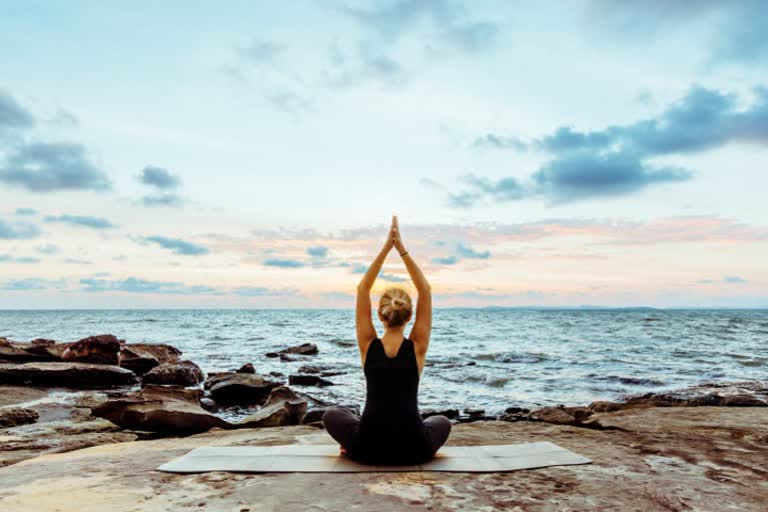New Delhi: The World Health Organisation (WHO) on Monday said that regular practice of yoga can help people of all ages prevent and control non-communicable diseases (NCDs), which kill 41 million people globally every year, more than a third of them prematurely.
“Yoga can help a person lose weight, relieve stress, improve immunity and build and maintain physical fitness and mental and emotional well-being. It can be practised anywhere, at any time, and requires no financial investment. The four major NCDs – cardiovascular diseases, cancer, chronic respiratory diseases and diabetes – account for more than 80 per cent of all premature NCD deaths, of which 85 per cent occur in low- and middle-income countries,” said Dr Poonam Khetrapal Singh, WHO's Regional Director for South-East Asia.
Read:|Yoga back at its 2,000-year-old home in Pakistan
Commemorating the 7th International Day of Yoga, Dr Khetrapal said that the region has in recent years accelerated action to prevent and control NCDs, for which efforts to enhance physical activity and promote mental health continue to be key. “All countries in the region continue to implement multi-sectoral NCD action plans that facilitate physical activity in schools, workplaces and public spaces,” she said.
Dr Khetrapal said that Yoga is a powerful way for people of all ages and incomes, whatever their gender or ethnicity, to prevent and control NCDs, increase overall physical and mental health, and reduce individual and public health expenditure. She suggested, “Children aged 5-17 require at least 60 minutes of moderate to vigorous-intensity daily aerobic activity. Adults aged 18-64 need 150 to 300 minutes of moderate-intensity weekly aerobic activity.”
Read:|India celebrates 7th International Day of Yoga; President, Union Ministers participate
Several countries have included yoga in preventive and promotive health strategies, which in all countries aim to achieve the WHO global action plan on physical activity targets: a 10 per cent reduction in physical inactivity by 2025 and a 15 per cent reduction by 2030. “Most countries have developed national mental health policies which they continue to apply, to strengthen primary level services and promote multi-sectoral buy-in. The region continues to pursue Flagship Priorities on preventing and controlling NCDs and achieving universal health coverage (UHC), both of which require access for all to preventive and promotive health interventions,” she said.
Dr Singh said that the disproportionate impact of Covid-19 has underscored the need for all people to be empowered to achieve life-long health and well-being. “People living with NCDs are at higher risk of developing severe COVID-19 symptoms. They must continue to be provided uninterrupted access to NCD services and encouraged and enabled to take preventive action, for which yoga at home can prove beneficial and safe,” she said.
Throughout the COVID-19 response, WHO will continue to support the Member States to promote healthy lifestyles, increase health equity, and maintain and strengthen services for NCDs, including for mental health – a critical need in the months and years to come, Dr Singh added. Policy makers in the region continue to integrate evidence-based traditional medicine (TRM) into health systems, in line with the strategic aims of WHO’s global Traditional Medicine Strategy 2014–2023.
“All countries have in place national policies on TRM. Most countries have established formal training and education systems for TRM practitioners. Six countries have co-located TRM services in health systems at some or all levels. Five countries have an essential drug policy on TRM products and include TRM products in national essential drug lists,” she said.
Read:|International Yoga Day 2021: Yoga For Well-Being!
